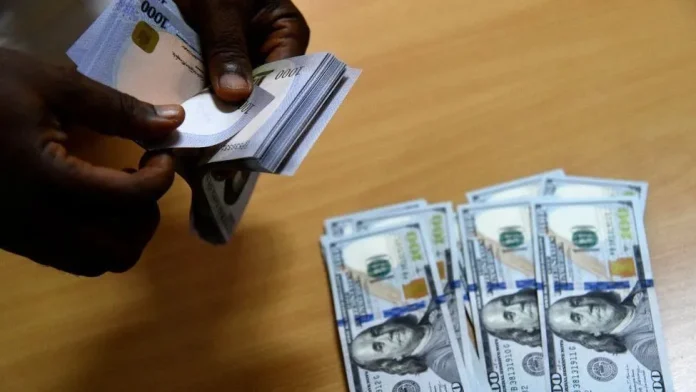Under pressure from demand for US dollars and other foreign currencies, the Nigerian naira fell in the official window. Both the official and informal market spot rates are currently becoming closer to one another as a result of the local currency devaluation.
One US dollar is exchanged for N1,416.57 on the Nigerian independent foreign exchange market, which represents a 4.60% decrease from the N1,354.21 reported on the FMDQ Securities Exchange platform the day before.
On Tuesday, however, the overall daily turnover rose to 160.77 million dollars, from Monday’s recorded 84.83 million dollars. Despite FX sales to Bureaux de Change operators in the informal currency market, the Naira finished at ₦1,415 per US dollar on the parallel market.
In the global commodity market, crude oil prices experienced a decline, with the Brent crude dropping by 0.68% to trade at $82.76 per barrel, and the West Texas Intermediate (WTI) crude oil also declining by 0.81% to trade at $77.85 per barrel.
Nigeria’s foreign reserves maintained an uptrend, hitting $32.30 billion, according to latest update on Central Bank of Nigeria (CBN) website.
The naira remained volatile in the FX market, largely reflecting weak capital inflows and subpar interventions from the CBN, according to Cordros Capital Limited.
As concerns about the escalation of the Middle East conflict are waning, analysts highlight that the moderation of yields on naira-denominated assets amid elevated global interest rates are further discouraging foreign portfolio investment (FPI) inflows.
With the CBN maintaining a relaxed stance on its monetary tightening measures and considering the persisting uncertain geopolitical environment, analysts at Cordros Capital said they anticipate FPI inflows will remain subdued. Consequently, the naira is expected to remain under pressure in the short term.













